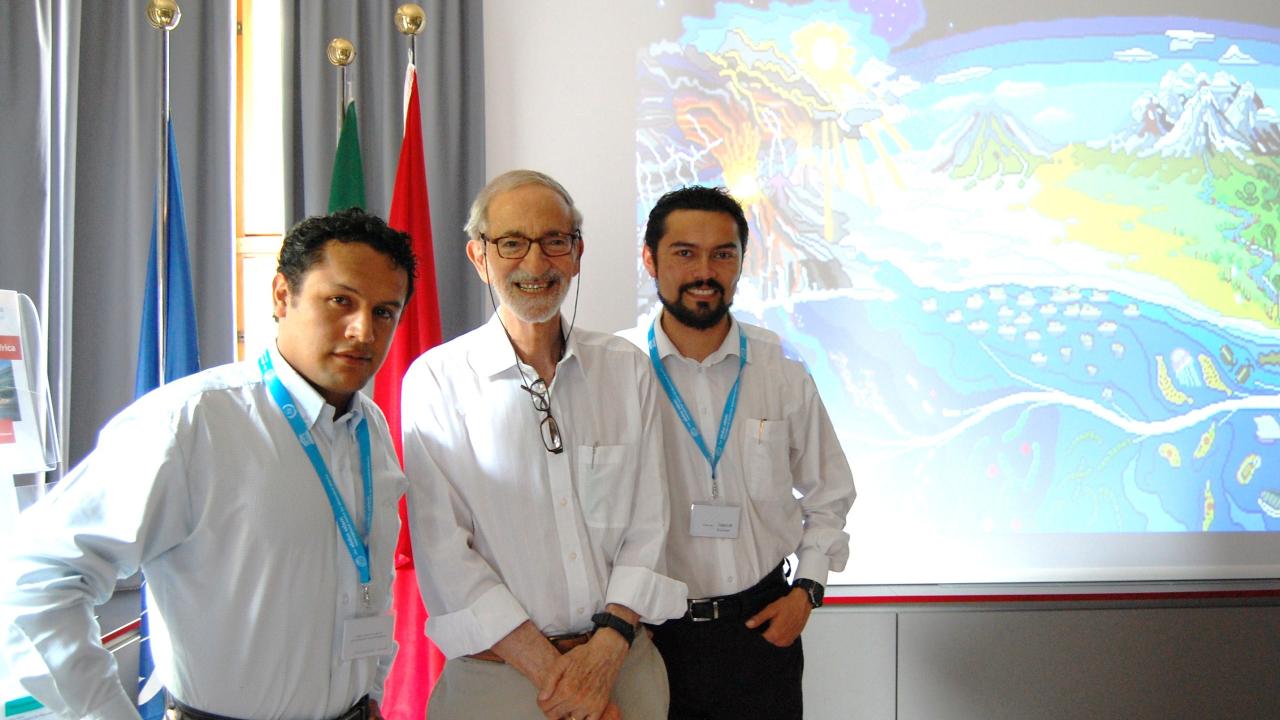
Last November, the Instituto de Astrobiologia of Colombia became the first Latin American affiliate of the NASA Astrobiology Institute (NAI).
Jorge Bueno and Andres Moreno, the director and assistant director of the Colombian institute, gave a seminar at ICTP on 19 July entitled "A New Member of the Astrobiology Community," outlining the projects the organization has undertaken and how those activities will contribute to research and education efforts that stretch beyond both astrobiology and Colombia.
Bueno noted that Colombia is home to many extreme environments that could contain new microorganisms. Currently, the team is investigating volcanoes in the southern part of the country. In addition to microbiology, researchers associated with the program are studying soil science, engineering robots for planetary research, and investigating the role of lipids and prions in the development of life.
Several other countries in Latin America, including Mexico, Argentina, Brazil and Venezuela, have growing numbers of researchers in astrobiology, but none of them have gained an affiliation with NASA. "We are very happy, but it's a big responsibility," Bueno said.
Bueno believes that the Colombian institute's strong commitment to public outreach and education is the factor that sets it apart from other Latin American organizations. They are developing Spanish-language materials that can be used throughout Latin America and among Spanish-speaking communities in the United States to educate and encourage the next generation of astrobiologists.
Bueno and Moreno co-authored Astrobiología: un Universo de Vida (Astrobiology: a Universe of Life), which is the first astrobiology book for a general readership that has ever been published in Latin America. The text covers scientific topics important to understanding astrobiology, from the origin of the universe to evolution to extrasolar planets. The book was first published in April 2011.
In the current Colombian school system, students are taught that research and investigation are privileges reserved for those who reach the highest levels of education, and younger students' natural curiosity is discouraged. Bueno hopes that their program will encourage new teaching methodologies within the country and contribute a new model in education. He said that astrobiology is an excellent way to engage the creativity and imagination of young people, while at the same time introducing them to physics, biology, engineering and other hard sciences.
This was the first time Bueno and Moreno had visited ICTP. Bueno called the amount of interdisciplinary research at the centre "amazing," and said that, while there are currently few interdisciplinary programs in Colombia, he hopes the growth of the Instituto de Astrobiologia will help change that. "Our work in astrobiology is a first step toward more collaboration," Bueno said.
















